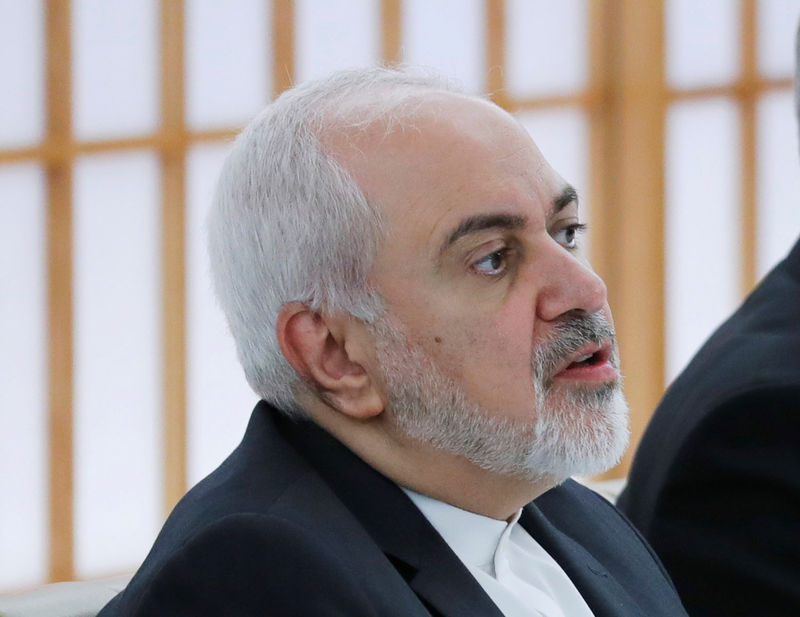TOKYO (Reuters) - Iran is committed to its obligations under an international nuclear deal despite the U.S. withdrawal from the landmark agreement, its foreign minister said on Thursday, calling the reimposition of U.S sanctions "unacceptable".
Foreign Minister Mohammad Javad Zarif made the comments in a meeting with his Japanese counterpart in Tokyo as tensions rise in the Middle East, fuelling concern that the United States and Iran are heading for conflict.
Iran is exercising "maximum restraint in spite of the fact the United States withdrew from (the) JCPOA last May," Zarif said at the beginning of his meeting with Japanese Foreign Minister Taro Kono.
He was referring to the Joint Comprehensive Plan of Action signed in 2015 by the United States, Iran and other countries, under which Iran curbed its uranium enrichment capacity and won sanctions relief in return.
President Donald Trump withdrew the United States from the agreement last year and is ratcheting up sanctions on Iran, aiming to strangle its economy by ending its international sales of crude oil. Japan was a major buyer of Iranian oil for decades before the sanctions.
An attack on four oil tankers in the Gulf on Sunday, for which no one has claimed responsibility, and Saudi Arabia's announcement on Tuesday that armed drones hit two of its oil pumping stations have compounded worries about war.
The United States withdrew staff from its embassy in Iraq on Wednesday out of apparent concern about threats from Iran, with U.S. sources saying they believe Iran encouraged the attacks on the oil tankers.
Trump is sending an aircraft carrier group, B-52 bombers and Patriot missiles to the Middle East to counter what the United States calls a heightened threat from Iran to U.S. soldiers and interests in the region.
"We believe that escalation by the United States is unacceptable and uncalled for," Zarif told Kono in front of reporters before they met privately.
Nevertheless, Iran has relaxed restrictions on its nuclear programme and threatened action that could breach the nuclear deal, although the initial moves do not appear to violate the agreement.
"I'm concerned that the situation in the Middle East is becoming very tense," Prime Minister Shinzo Abe told Zarif in a later meeting.
Kono said it was essential to maintain the nuclear agreement and urged Iran to keep implementing it, echoing other countries.

Asian shippers and refiners have put ships heading to the Middle East on alert and are expecting a possible rise in marine insurance premiums after the attacks on the Saudi oil tankers and pipeline facilities, industry sources said on Tuesday.